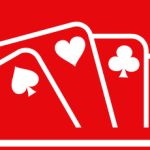Understanding Pot-Limit Omaha High-Low 🃏
Hey there, fellow poker enthusiasts! It’s Ramy, your go-to guy for all things poker and casino. Today, I’m diving into one of the more complex yet incredibly exciting poker variations—Pot-Limit Omaha High-Low (PLO8). This game not only tests your strategic acumen but also your ability to adapt to different situations, as it involves a unique aspect of splitting the pot between high and low hands. So, buckle up for a wild ride! 🏍️
The Basics of PLO8
Before jumping into the nitty-gritty, let’s get a handle on the basics. Pot-Limit Omaha High-Low (shortened to PLO8) is a split-pot variation of the standard Omaha game. In PLO8, the pot is divided between the highest and the lowest qualifying hand, which adds a layer of strategy and complexity to the game.
In PLO8, just like regular Omaha, each player is dealt four hole cards. The aim is to make the best five-card hand using exactly two of your hole cards and three of the community cards. However, what makes PLO8 different is the element of the low hand, which we’ll get to soon enough.
Understanding the Betting Structure
The betting structure in Pot-Limit Omaha High-Low is unsurprisingly pot-limit. This means that the maximum amount a player can raise is equal to the current size of the pot. The formula for calculating the maximum raise is:
- Current Pot + All Bets on the Table + Your Call
For example, if the pot is $100, and there are $50 worth of bets on the table, and you need to call a $10 bet, the maximum raise would be $160 (i.e., 100 + 50 + 10).
This structure makes for some intense and action-packed hands! 🔥
High Hand vs. Low Hand
The main twist in PLO8 is the split-pot aspect. Here’s how it works:
- High Hand: The highest-ranking five-card hand wins half of the pot. The hand rankings follow standard poker rules (Royal Flush, Straight Flush, Four of a Kind, etc.).
- Low Hand: The lowest qualifying five-card hand wins the other half of the pot. For a hand to qualify as a low hand, it must have five cards with ranks of 8 or lower. Straights and flushes do not count against the hand, so the best possible low hand is A-2-3-4-5, also known as the « wheel ».
If no qualifying low hand is made, the high hand takes the entire pot. This makes understanding both aspects crucial for maximizing your winnings. 🤑
Reading the Table: Community Cards
As with any variant of poker, reading the community cards is essential. However, in PLO8, you’re not just looking out for your high hands but also potential low hands. A flop of 3-7-9 might not look particularly exciting at first glance, but it could yield a strong low hand. Keep a keen eye on both possibilities. 👀
PLO8 Strategy Tips
When you have internalized the rules, theory, and mechanics of PLO8, the next step is to develop a functional strategy for taking on both the high and low aspects of the game:
- Start with Strong Hands: In PLO8, starting hands can be even more crucial than in other poker variants. Ideal starting hands often include combinations like A-2-X-X (where you can either go high or low), A-A-X-X (where you dominate the high hand), and good pairs or sequential cards like J-10-9-8.
- Expect a Split Pot When You Aim Low: Remember, people will be gunning for that low half of the pot. Even if you secure a low hand, you might not scoop the whole pot yourself. It’s always good to have backup plans for the high hand.
- Avoid Middle Cards: While cards within the 5-9 range might seem decent, they often end up causing trouble, as they can neither make a strong high hand nor an effective low hand.
- Value Position: Your position at the table is important in any poker game, and PLO8 is no exception. Being in a later position allows you to make more informed decisions after seeing how others bet.
Common Mistakes to Avoid
Knowing what to avoid can be just as essential as knowing what to do. Here are some pitfalls often encountered in PLO8:
- Overvaluing High Hands: Sure, a high pair or high flush seems fantastic, but if you’re not considering potential low hands, you could be in for a rude surprise.
- Ignoring the Low Hand: It’s easy to get caught up in aiming for that spectacular full house or straight. However, ignoring potential low cards can cost you precious chips, especially if an opponent sweeps the table with a low hand that qualifies.
- Not Calculating Pot Odds: This is a common pitfall in all forms of poker but is even more crucial in PLO8 due to the pot-limit betting structure.
- Underestimating the « Nut » Hands: In a game where pots can be split, always aim for the « nuts » (the best possible hand)—both high and low. This not only maximizes your chances but can also save you from losing a significant chunk of your stack on subpar hands.
Where to Play PLO8
Intrigued and ready to dive in? Many online platforms offer PLO8 games ranging from micro-stakes to high-roller tables. Some popular online poker rooms you might want to check out include:
- PokerStars: Known for its variety and large player base.
- PartyPoker: Great software and frequent tournaments.
- 888poker: Good for beginners and offers plenty of promotions.
Offline, many casinos offer PLO8 games, especially in poker hotbeds like Las Vegas and Atlantic City. 🏙️
Helpful Resources and Products
If you’re looking to take your PLO8 game to the next level, there are plenty of resources and products available:
- Books: Check out « Omaha High-Low: Play to Win with the Odds » by Bill Boston or « Mastering Omaha/8 Poker » by Mark Tenner and Lou Krieger.
- Software: Poker tracking software like PokerTracker and Hold’em Manager can provide valuable insights into your game.
- Training Sites: Websites like Run It Once and Upswing Poker offer specialized training modules and videos for Pot-Limit Omaha high-low.
So there you have it—a thorough rundown of Pot-Limit Omaha High-Low. With its dynamic, fast-paced nature, PLO8 offers an extra layer of strategy and excitement compared to other forms of poker. Whether you’re a newcomer or looking to sharpen your skills, understanding these fundamentals will set you on the path to mastering this thrilling game. Ready to hit the tables? See you there! 🃏✨

